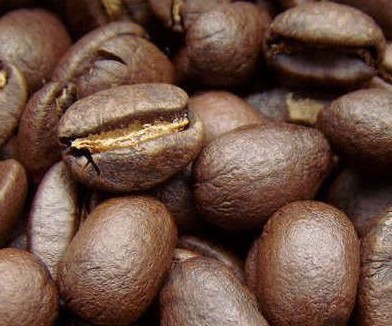The antioxidant effect of coffee grounds is 500 times that of vitamin C.

BIOON/, May 11 / PRNewswire-FirstCall-Asianet /-- the coffee industry plays a major role in the global economy and has a vital impact on the environment, producing more than 2 billion tons of coffee by-products each year; when coffee beans are roasted and dried, the husk (that is, the skin of coffee beans) is usually removed during processing and coffee grounds are directly discarded. Conventional wisdom holds that these by-products, coffee grounds and coffee husks, do not have much practical value and applications, and coffee grounds can sometimes be homemade as exfoliating glycolic acid (Exfoliants) or as a cleaning product.
Recently, in a research paper published in the international journal LWT-Food Science and Technology, scientists from the University of Granada began to determine which coffee by-products can be recycled as nutrients, thus helping to reduce the waste of coffee by-products. In the article, the researchers clarify that coffee grounds and coffee husks have strong antioxidant and antibacterial properties because they are rich in fiber and phenols, and indeed the findings also reveal that coffee grounds are more than 500 times more potent than vitamin C. therefore, using coffee grounds as a functional food will bring huge health benefits.
Researcher Professor Rufian Henares said that coffee grounds and other by-products also include high levels of protein melanin, which is often produced during roasting and makes coffee brown. The biochemical properties of these protein melanins may have a series of practical applications, such as preventing the growth of harmful pathogens in food. However, if we can take advantage of the beneficial effects of coffee by-products, then we need to remove this protein melanin first because it interferes with the beneficial effects of by-products.
Finally, the researchers concluded that the treatment of coffee by-products may lead to potential recycling as a new food ingredient, which may significantly reduce the environmental effects of discarded coffee by-products. Researchers from economics and finance have called for a plan to speed up the assessment of the potential value of coffee by-products so that they can be better utilized.
Source: biological Valley
Important Notice :
前街咖啡 FrontStreet Coffee has moved to new addredd:
FrontStreet Coffee Address: 315,Donghua East Road,GuangZhou
Tel:020 38364473
- Prev

Today, after the rapid development of coffee with you: pay arrears and close down shop.
Coffee accompany you (Caffebene), born in South Korea in 2008, has become a leading brand in the country's coffee industry. In 2012, coffee accompanied you into China as a joint venture, and experienced more than two years of rapid development, but now it is faced with many problems, such as wage arrears, arrears, shop closure and so on. Did █ recover today's paycheck? on the evening of May 8, nearly 19:00, someone was with you in the coffee.
- Next

Australian coffee giant Gloria grabs the beach and Tianjin Gouli enters the coffee market.
China News Service, Tianjin, May 9 (Reporter Zhang Daozheng)-the fourth store of Australia's largest global coffee chain in Tianjin was officially unveiled on the 9th in the bustling Xiaobailou Central Business District. The move marks another solid step forward by Tianjin GouBuLi Group, a Chinese time-honored brand with a history of more than 150 years, in the process of expanding China's local catering market. Morning of Tianjin Goubuli Group
Related
- Can lightly roasted coffee beans be used to extract espresso? How finely should you grind high-quality coffee beans to make Italian latte?
- What is the difference between the world's top rose summer coffee and Yejia Shefi? What are the flavor characteristics of Yega Shefi coffee and Panama rose summer?
- The ceremony is full! Starbucks starts to cut the ribbon at a complimentary coffee station?!
- A whole Michelin meal?! Lucky launches the new "Small Butter Apple Crispy Latte"
- Three tips for adjusting espresso on rainy days! Quickly find the right water temperature, powder, and grinding ratio for espresso!
- How much hot water does it take to brew hanging ear coffee? How does it taste best? Can hot water from the water dispenser be used to make ear drip coffee?
- What grade does Jamaica Blue Mountain No. 1 coffee belong to and how to drink it better? What is the highest grade of Blue Mountain coffee for coffee aristocrats?
- What are the flavor characteristics of the world-famous coffee Blue Mountain No. 1 Golden Mantelin? What are the characteristics of deep-roasted bitter coffee?
- Can I make coffee a second time in an Italian hand-brewed mocha pot? Why can't coffee be brewed several times like tea leaves?
- Hand-brewed coffee flows with a knife and a tornado. How to brew it? What is the proportion of grinding water and water temperature divided into?

